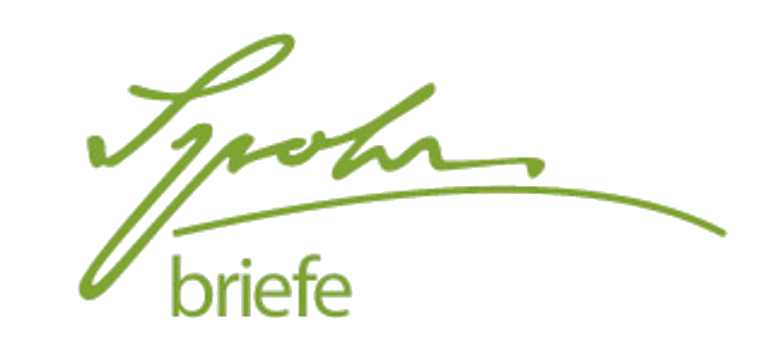1841091134
Edward Taylor an Louis Spohr in Kassel
London, Sonnabend 11. September 1841
Autograf: Universitätsbibliothek Kassel - Landesbibliothek und Murhardsche Bibliothek der Stadt Kassel (D-Kl), Sign. 4° Ms. Hass. 287[Taylor, E.:21
Dr. Louis Spohr
Hesse Cassel.
Germany.
Red Lion Court.
Fleet Street. Sept. 11. 1841.
Me dear & honoured Friend.
The parcel, containing the Orchestral parts, has arrived1, and I am impatient to discharge the various pecuniary obligations under which I lay to you, & again to remind you that the 20 Guineas from Moscheles have been at my Banker’s ever since he gave them to me.2
I now send you the first Act of my translation (for this letter would not contain both.) You will see that in some few instances I have been compelled to have the sense of the original; but, having your music always before me, I have written such words as the music (I hope) equally well expresses. There are some word & phrases which, perhaps, may puzzle Madame Spohr,3 because they are old & not used by modern English writers. Such words are taken from our translation of the Bible (made in the reign of our James I) and will be perfectly familiar to all English hearers on that account; and, besides it is desirable, in this poem, to retain, as much as possible, the Bible phraseology. Our friend, the German poet4, has selected the metres which in English are the most difficult, and, thereby, prevented my version from having the freedom & strength which I could have wished: and I have often said: ”how can I find words of equal power & eloquence with this music? You should have Milton to write for you, & not such a poor humble poet as I am.
I see, by the Orchestral parts, that you have finished the Ouverture. When you send me the full score (partitur) of the Oratorio, will you have the kindness also to send me the Piano Forte arrangement of the Ouverture for my English edition? Allow me, also, to say, that the metronome time is not marked in all the pieces in the copy that I have, & to request that you will have the kindness to mark the time of5 every piece in the full score.
There is no musical news in England; and this time of year, as you know, all the Concerts in London are over, and the Theatres are shut. The heads of my countrymen, besides, are too much filled with politics just now, to think about Music. You know that the Ministry is changed6 – from which I anticipate no good to the Country. The Tories will oppose themselves to all liberal measures, and the Commerce & Manufactures of England will be may much injured.7
Her liberties they dare not touch.
My Wife8 & daughters9 are, at present, at our house in Norfolk, where I forwarded the two letters which Madame Spohr had the kindness to write.
I write, this time, in English, for your excellent Lady understands our language so well, that it seems to me unnecessary to employ a German Secretary. Although it was always a great pleasure & honour to her to be your correspondent.10
Remember me most kindly to Madame Spohr, to Mad. de Malsburg & all my dear & hospitable friends at Cassel, & believe me
my honoured Friend
ever your most sincerely
Edw. Taylor
This week in the next Year I look forward to the great delight of seeing you under my roof.
| Autor(en): | Taylor, Edward |
| Adressat(en): | Spohr, Louis |
| Erwähnte Personen: | Malsburg, Caroline von der Milton, John Moscheles, Ignaz Oetker, Friedrich Spohr, Marianne Taylor, Deborah Taylor, Margaret Taylor, Meta Whittle, Kate |
| Erwähnte Kompositionen: | Spohr, Louis : Der Fall Babylons |
| Erwähnte Orte: | London |
| Erwähnte Institutionen: | Norfolk and Norwich Triennial Festival |
| Zitierlink: | www.spohr-briefe.de/briefe-einzelansicht?m=1841091134 |
Der letzte Brief dieser Korrespondenz ist Spohr an Taylor, 19.08.1841, den Taylor bei Niederschrift dieses Briefs nocht nicht kannte, wie er in dem eigentlichen Antwortbrief an Spohr, 23.09.1841 erklärte.
Dieser Brief beginnt mit Taylors englischer (Rück-)Übersetzung des Librettos zu Der Fall Babylons.
[1] Vgl. Spohr an die Buchhandlung Perthes & Besser, 20.08.1841.
[2] Vgl. Ignaz Moscheles an Spohr, 04.06.1841.
[3] Hier ein Wort unleserlich gestrichen.
[4] Friedrich Oetker übersetzte Taylors Vorlage ins Deutsche, damit Spohr verstand, was er komponierte. Da er dabei stark in die Metrik eingriff, war anschließend die Rückübersetzung ins Englische notwendig.
[5] „the time of” über der Zeile eingefügt.
[6] Nachdem das liberale Kabinett von William Lamb keine parlamentarische Mehrheit mehr hatte, wurde der konservative Robert Peel am 01.09.1841 neuer Premierminister.
[7] Peel trat für die Senkung der Importzölle ein.
[8] Deborah Taylor.
[9] Catharine und Margarete Taylor.
[10] Taylor hatte in der letzten Zeit seine Briefe an Spohr durch seine Schwiegertochter Meta Taylor übersetzen lassen (vgl. Taylor an Spohr, 10.11.1840).
Kommentar und Verschlagwortung, soweit in den Anmerkungen nicht anders angegeben: Karl Traugott Goldbach (20.12.2018).
